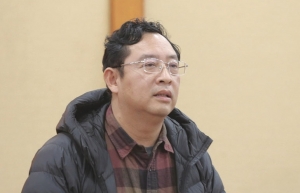Metropolis strives to instil confidence in new startups
Ho Chi Minh City Department of Science and Technology (DST) is currently finalising this model with expert input before seeking approval, as discussed at last week’s workshop on startup community development in the city.
 |
| Metropolis strives to instil confidence in new startups, illustration photo/ Source: freepik.com |
Phan Thi Quy Truc, deputy head of the Intellectual Property Management and Innovation Department under the DST, explained that he proposed capital exchange targets investment for seed-stage startups.
Inspired by various international sources, the model will have a transparent legal framework, including operational regulations, capital raising procedures, participant rights and responsibilities, and dispute resolution mechanisms.
“This transparency is crucial to instil confidence in both startups and investors,” Truc said at the workshop, while highlighting the importance of advanced and secure technology infrastructure to protect data and handle large transaction volumes accurately and efficiently.
Effective risk management is another cornerstone of the model. “Qualified personnel will assess the capabilities and development stages of startups, identify risks, and work to minimise investor losses while eliminating fraudulent activities,” Truc noted.
She also emphasised the necessity of a comprehensive and up-to-date information system about startups and funding projects. “This system will provide investors with detailed information, helping them evaluate potential projects and assess investment risks,” she added. Moreover, the platform will offer diverse services and support, such as legal, financial, and marketing advice, to connect startups with investors and create a collaborative environment.
Nguyen Huong Quynh, CEO of Bambu UP, cautioned against excessive regulation, which could stifle the platform’s openness.
“While the government should establish rules and conditions based on legal regulations, too many regulations could make the platform less accessible. The government should certify operational principles while allowing private entities to manage the platform under a market model with voluntary participation from stakeholders,” she said.
Bui Thi Thuy Tien, director of the Vietnam Startup Incubator, highlighted that risk management is the platform’s most critical aspect, as it directly impacts investor interests. “The exchange should evaluate startup projects’ potential, product value, enterprise valuation, and execution capabilities to build investor confidence and outline future benefits and reimbursement plans. This makes investors more confident in funding a project,” Tien stated.
Nguyen Viet Dung, director of Ho Chi Minh City DST, acknowledged the challenge of attracting social capital to the innovation startup sector, attributing it to a cultural hesitation towards risk and venture capital investments.
“The abundance of social capital is evident, but the challenge lies in attracting it to the innovation startup sector. Startups need to build more trust with investors,” he said. “The capital exchange for startups requires input from all ecosystem stakeholders. This input forms the foundation for developing a comprehensive proposal while ensuring the model complies with existing legal frameworks. The operational model must adhere to current legal regulations.”
The development of a vibrant startup ecosystem is crucial for fostering innovation, which is a key driver of economic growth.
This sentiment was echoed by Trang Tran, project manager at Vingroup Innovation Fund, who highlighted significant policy and legal barriers in commercialising products from academic research.
“Researchers in academic institutions face considerable challenges in commercialising their products,” she said. “Efforts to remove these barriers are ongoing, but it remains difficult for researchers to establish enterprises and startups to commercialise their products. This situation limits the culture of innovation and entrepreneurship within universities.”
Addressing legal barriers to product commercialisation, Pham Tuan Hiep, director of BK Holdings Incubator, said many researchers are public university employees, which legally prevents them from holding positions such as directors in companies they help to establish.
“This is a significant obstacle that needs to be addressed to foster a more innovative environment. Another challenge is the mixed ownership of research outcomes, including ownership by public institutions or universities where the researchers are employed. The process of evaluating, valuing, and transferring these mixed ownership assets into a startup is very complex,” Hiep explained.
On the other hand, Moon Min, managing director of Next Challenge Foundation, a South Korean startup accelerator which aims to expand to Vietnam’s market, highlighted certain regulatory and legal barriers.
“While the Vietnamese government is eager to attract more tech companies and green enterprises, existing regulations and decrees can pose challenges for businesses in terms of understanding and compliance. This creates a significant barrier for companies looking to operate in Vietnam,” she said.
Vietnam is becoming increasingly attractive to investors due to its expanding innovation ecosystem. Min noted that in South Korea, the government consistently supports universities and educates students about innovation and entrepreneurship, helping them understand business practices and create positive societal impacts. Despite numerous innovations, South Korea still faces complex social issues.
“Even with strong development and good preparation with tech and ideas, the Korean market remains fiercely competitive,” Min said.
 | Climate tech startups a catalyst for Vietnam’s net-zero future I remember landing in Hanoi for the first time in early 2010, impressed by endless streams of motorbikes. As a practitioner pursuing sustainable development, I thought about the emissions fuming out of the many vehicles. Over a decade passed, and when I landed again in Hanoi a few months ago, I still found myself surrounded by swarms of motorbikes. But things are about to change. |
 | Innovation startups eager for further supporting policies While innovation startups and businesses seek supporting policies to further develop, more moves are nevertheless being planned. Pham Hong Quat, director general of the National Agency for Technology Entrepreneurship and Commercialisation Development under the Ministry of Science and Technology, discussed with VIR’s Bich Thuy what these moves entail. |
 | Funding halves for Vietnamese tech startups in first half of 2024 Total funding into Vietnam tech startups dropped 52.7 per cent to $46.5 million in the first half of 2024, compared with $98.5 million in the first half of 2023, according to a report by Tracxn, a leading global SaaS-based market intelligence platform. |
What the stars mean:
★ Poor ★ ★ Promising ★★★ Good ★★★★ Very good ★★★★★ Exceptional
Related Contents
Latest News
More News
- Kurz Vietnam expands Gia Lai factory (February 27, 2026 | 16:37)
- SK Innovation-led consortium wins $2.3 billion LNG project in Nghe An (February 25, 2026 | 07:56)
- THACO opens $70 million manufacturing complex in Danang (February 25, 2026 | 07:54)
- Phu Quoc International Airport expansion approved to meet rising demand (February 24, 2026 | 10:00)
- Bac Giang International Logistics Centre faces land clearance barrier (February 24, 2026 | 08:00)
- Bright prospects abound in European investment (February 19, 2026 | 20:27)
- Internal strengths attest to commitment to progress (February 19, 2026 | 20:13)
- Vietnam, New Zealand seek level-up in ties (February 19, 2026 | 18:06)
- Untapped potential in relations with Indonesia (February 19, 2026 | 17:56)
- German strengths match Vietnamese aspirations (February 19, 2026 | 17:40)

 Tag:
Tag:



















 Mobile Version
Mobile Version